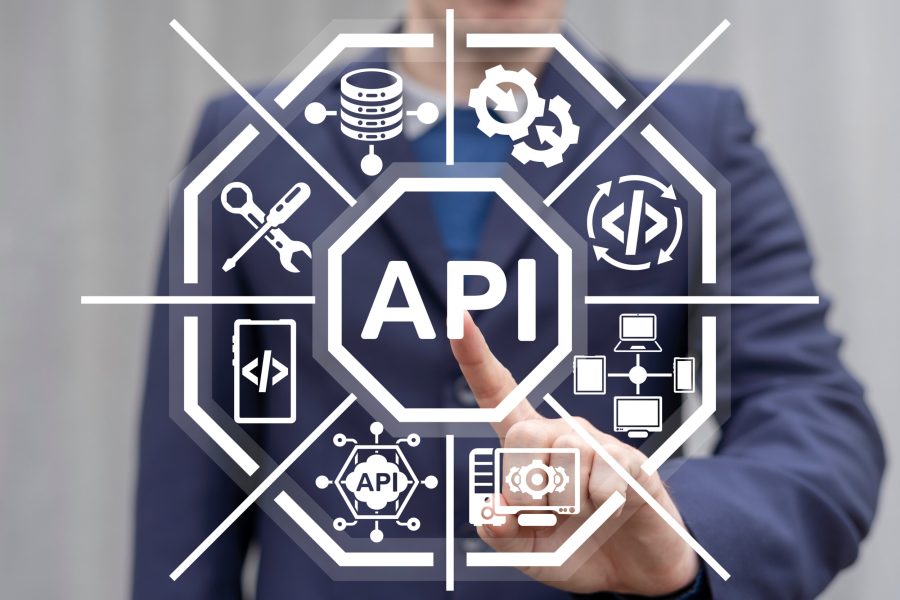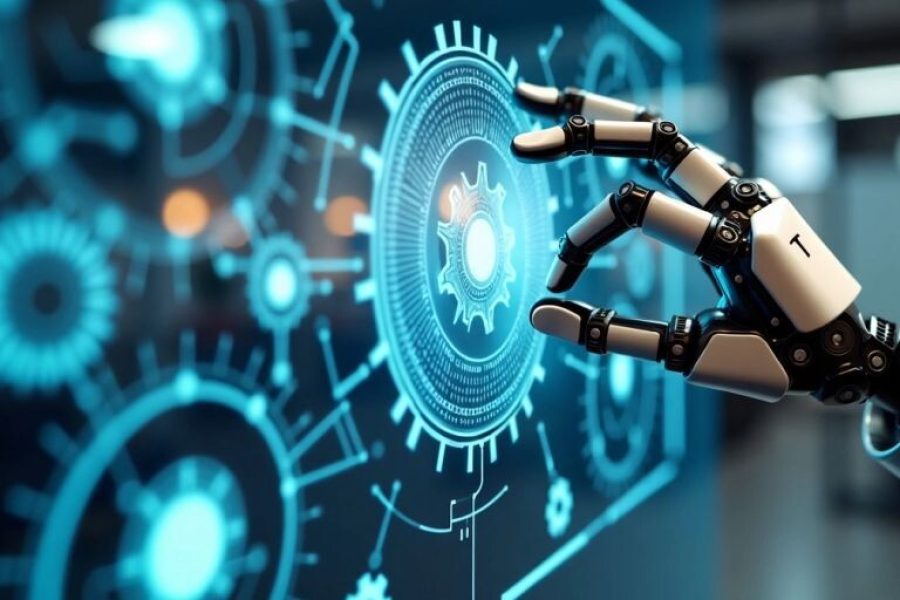In today’s digital world, artificial intelligence (AI) is changing how we optimize our websites for search engines. By using AI, we can improve our SEO strategies, create better content, and enhance user experiences. This article will explore how AI can help with these tasks and what tools are available to make the most of it.
Key Takeaways
- AI helps find the best keywords for your content by analyzing trends and search data.
- Using AI in content creation can save time and improve quality, making posts more engaging.
- AI tools can track how well your SEO strategies are working, helping you make better decisions.
- Personalized content created with AI can lead to higher user satisfaction and engagement.
- AI can automate many repetitive tasks, freeing up time for more creative work.
Understanding the Role of AI in SEO
Artificial Intelligence (AI) is changing how we approach search engine optimization (SEO). AI helps us make smarter decisions by analyzing data quickly and accurately. Here’s how AI is enhancing various aspects of SEO:
How AI Enhances Keyword Research
- AI tools can analyze large amounts of data to find the best keywords for your content.
- They can identify trends and suggest keywords that your competitors might be missing.
- AI can also help in understanding user intent behind searches, making your keyword strategy more effective.
The Impact of AI on Content Creation
- AI can assist in generating content ideas based on trending topics.
- It can help create drafts, but human review is essential to ensure quality and relevance.
- AI tools can optimize content for SEO by suggesting improvements based on current best practices.
AI-Driven Analytics for SEO
- AI can automate the analysis of website performance, providing insights into what works and what doesn’t.
- It can track user behavior and engagement metrics, helping you adjust your strategies accordingly.
- AI tools can predict future trends, allowing you to stay ahead of the competition.
In summary, AI is not here to replace human effort but to enhance it. By using AI tools, marketers can focus on strategy and creativity while automating repetitive tasks. This partnership between AI and humans can lead to better SEO outcomes and improved user experiences.
| Feature | AI Contribution |
|---|---|
| Keyword Research | Identifies trends and gaps |
| Content Creation | Generates ideas and drafts |
| Analytics | Automates performance tracking |
Implementing AI Tools for Website Optimization
Top AI Tools for SEO
When it comes to enhancing your website’s performance, several AI tools can make a significant difference. Here are some top choices:
- Frase.io: This tool helps with content optimization by suggesting improvements based on SEO best practices.
- Uxify: A web performance tool that predicts user behavior to enhance navigation and loading times.
- Surfer SEO: This tool analyzes your content against competitors to help you rank higher in search results.
Integrating AI with Existing Systems
Integrating AI tools into your current website setup can be straightforward if you follow these steps:
- Assess Your Needs: Identify what areas of your website need improvement.
- Choose the Right Tools: Select AI tools that align with your goals.
- Test and Monitor: Implement the tools and keep track of their performance to ensure they meet your expectations.
Measuring the Effectiveness of AI Tools
To understand how well your AI tools are performing, consider tracking these key metrics:
| Metric | Description |
|---|---|
| Page Load Time | How quickly your pages load for users. |
| Bounce Rate | The percentage of visitors who leave quickly. |
| Conversion Rate | The percentage of visitors who take action. |
Using AI tools can lead to better website performance and user engagement, but it’s essential to choose wisely and monitor results closely.
By implementing the right AI tools, you can significantly enhance your website’s optimization and user experience.
AI-Powered Content Strategies

Creating Personalized Content with AI
AI can help businesses create personalized content that speaks directly to their audience. By analyzing user data, AI tools can identify preferences and tailor content accordingly. Here are some ways to use AI for personalization:
- Analyze user behavior to understand interests.
- Create content that addresses specific needs.
- Use AI to segment audiences for targeted messaging.
Using AI for Content Gap Analysis
AI can also assist in identifying content gaps. This means finding topics that are relevant but not yet covered on your site. Here’s how to do it:
- Use AI tools to analyze competitor content.
- Identify keywords that are underrepresented.
- Create a plan to fill these gaps with new content.
Optimizing Content for User Intent
Understanding user intent is crucial for effective SEO. AI can help optimize content by:
- Analyzing search queries to determine what users are looking for.
- Adjusting content to match user expectations.
- Continuously updating content based on performance metrics.
AI-driven content creation is transforming how we produce and consume content, making it more efficient and scalable.
By leveraging AI in these ways, businesses can enhance their content strategies, ensuring they meet the needs of their audience while improving their SEO performance.
| Strategy | Benefits |
|---|---|
| Personalized Content | Higher engagement rates |
| Content Gap Analysis | Improved topic coverage |
| User Intent Optimization | Better search rankings |
Enhancing User Experience with AI
AI in Improving Site Usability
AI plays a crucial role in making websites easier to use. By analyzing user behavior, AI can help identify areas that need improvement. Here are some ways AI enhances usability:
- Personalized Navigation: AI can adjust menus based on user preferences, making it easier for visitors to find what they need.
- Smart Search Functions: AI improves search features by predicting what users are looking for, leading to faster results.
- Accessibility Features: AI tools can help make websites more accessible for people with disabilities, ensuring everyone can navigate easily.
Personalizing User Journeys with AI
AI can create unique experiences for each visitor. This personalization can lead to higher engagement and satisfaction. Here are some methods:
- Tailored Content: AI analyzes user data to suggest content that matches individual interests.
- Dynamic Recommendations: Based on past behavior, AI can recommend products or articles that users are likely to enjoy.
- Behavior Tracking: AI monitors how users interact with a site, allowing for real-time adjustments to improve their experience.
AI-Driven A/B Testing for Better UX
A/B testing is essential for optimizing user experience. AI can automate this process, making it more efficient. Here’s how:
- Faster Testing: AI can quickly analyze which version of a webpage performs better, saving time.
- Data-Driven Decisions: AI provides insights based on user interactions, helping teams make informed choices.
- Continuous Improvement: With AI, testing can be ongoing, allowing for constant updates to enhance user experience.
AI tools can significantly boost user engagement by providing personalized experiences. This leads to happier customers and better business outcomes.
By leveraging AI, businesses can create a more user-friendly environment that meets the needs of their visitors, ultimately leading to increased satisfaction and loyalty.
AI in Technical SEO

Automating Technical Audits with AI
AI can significantly streamline the process of conducting technical audits. By using AI tools, you can:
- Scan millions of URLs quickly to identify issues.
- Automate the detection of broken links and other technical problems.
- Generate comprehensive reports that highlight areas needing improvement.
AI for Site Speed Optimization
Site speed is crucial for user experience and SEO. AI can help optimize your website’s speed by:
- Analyzing load times and identifying bottlenecks.
- Suggesting improvements based on user behavior data.
- Implementing changes automatically to enhance performance.
Using AI to Identify and Fix SEO Issues
AI tools can assist in pinpointing SEO issues that may not be immediately visible. They can:
- Monitor your site continuously for potential problems.
- Provide insights into keyword performance and content gaps.
- Offer recommendations for fixing issues, ensuring your site remains competitive.
AI enhances the efficiency of technical SEO, allowing for faster identification and resolution of issues.
By leveraging AI in technical SEO, you can ensure your website is optimized for both search engines and users, leading to better performance and higher rankings.
Future Trends in AI and SEO
Voice Search Optimization with AI
As more people use voice-activated devices, optimizing for voice search is becoming essential. Voice search changes how users phrase their queries, often making them longer and more conversational. Businesses need to adapt their SEO strategies to include:
- Natural language keywords
- Localized content for voice queries
- Structured data to enhance visibility
AI and Visual Search
Visual search technology is on the rise, allowing users to search using images instead of text. This trend is reshaping SEO strategies. Companies should focus on:
- Optimizing images with relevant tags and descriptions
- Using high-quality visuals to engage users
- Implementing visual search tools on their websites
The Evolution of AI Algorithms in SEO
AI algorithms are continuously evolving, making it crucial for businesses to stay updated. Understanding these changes can help in:
- Adapting content strategies to align with new algorithms
- Leveraging AI tools for better data analysis
- Monitoring performance metrics to refine SEO efforts
The future of AI in SEO is not just about technology; it’s about enhancing user experience and making information more accessible.
By embracing these trends, businesses can position themselves for success in the ever-changing landscape of SEO.
Challenges and Ethical Considerations in AI and SEO
Addressing Bias in AI Algorithms
AI can sometimes reflect real-world biases if it learns from biased data. This can lead to unfair outcomes in SEO practices. To tackle this, developers must actively work to identify and reduce biases in their algorithms. Here are some steps to consider:
- Regularly audit AI systems for bias.
- Use diverse datasets for training.
- Involve a diverse team in the development process.
Ensuring Data Privacy with AI
With AI handling large amounts of personal data, data privacy becomes a major concern. Companies must ensure that they protect sensitive information to maintain public trust. Here are some best practices:
- Implement strong data encryption.
- Regularly update privacy policies.
- Train employees on data protection.
Balancing Automation and Human Oversight
While AI can automate many tasks, it’s crucial to maintain a balance between automation and human oversight. Human review is essential to ensure the quality and accuracy of AI-generated content. Here are some tips:
- Always have a human review AI outputs before publishing.
- Use AI as a tool to assist, not replace, human creativity.
- Encourage collaboration between AI and human teams.
The integration of AI in SEO is not just about technology; it’s about ensuring ethical practices that foster trust and transparency in the digital landscape.
Navigating the world of AI and SEO comes with its own set of hurdles and ethical questions. As we embrace these technologies, it’s crucial to think about their impact on privacy and fairness. If you’re curious about how to tackle these challenges effectively, visit our website for more insights and a free strategy session!
Conclusion
In conclusion, it’s clear that many ideas about AI are just misunderstandings. By learning the real facts about AI, we can see how useful it can be and use it wisely. AI is not here to take our jobs or control us; it’s a helpful tool that can make our lives easier and solve problems. As we look ahead, it’s important to stay updated and not let fear or wrong information stop us. By accepting AI with an open mind and careful planning, we can enjoy its many benefits for everyone.
Frequently Asked Questions
Will AI take jobs away from people?
AI might change some jobs, but it will also create new ones. It helps with tasks like data entry, allowing people to focus on more creative work.
Can AI be biased?
Yes, AI can show bias if it learns from biased data. But we can reduce this issue by using better data and careful checks.
Is AI safe for my privacy?
AI can be safe if companies use it responsibly and follow rules to protect your personal information.
Is AI too expensive for small businesses?
AI can be affordable for small businesses. Many tools and services are designed to be cost-effective.
Can AI be creative like humans?
AI can help create art, music, and stories, but it works best when it collaborates with humans.
Is AI a sentient being?
No, AI is not sentient. It can learn and make choices but does not have feelings or consciousness.










